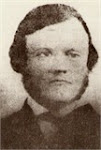this article by Madison attorney Joseph Ranney).
Governor Walker’s budget repair bill, if adopted, would not only reduce public employee compensation, but also roll back worker rights to bargain collectively with public employers. The proposed bill would virtually eliminate the collective bargaining rights of employees of state government, local government and school districts.
This is Wisconsin?
Here is LRB's full 48-page analysis.
The proposal would require state employees to pay about 5.8% toward their pension and about 12% of their health care benefits. As a public employee, when the elections turned state government 180 degrees, I expected to take an economic hit.
I did not expect the nearly total destruction of the state's system of collective bargaining for public employees. As far as I can tell, the elimination of collective bargaining was not mentioned during his campaign. The hit to the pocketbook will hurt, but for many the proposed changes to the collective bargaining law are far more important.
The governor's proposal would change the state's labor laws to eliminate collective bargaining on any topic except wages. That means there can be no bargaining over hours or working conditions. And if there is no bargaining on these topics, then there is also no binding grievance arbitration procedure on any dispute except wages.
This is Wisconsin?
The bill prohibits public employers “from bargaining collectively…with respect to…any factor or condition of employment except wages...” The prohibition applies to bargaining with state government, local government, and school district employees. [For state government, see SECTION 292, line 10, page 101, which creates s. 111.91 (3) of the statutes. For local government, see SECTION 223, line 13, page 82, which creates s. 111.70 (4) (mb) of the statutes. For school districts, see SECTION 303, line 22, page 104, which creates s. 118.223 of the statutes.]
While state and local government and school district workers could still have unions, these unions would struggle under impossible conditions. Here are some of the details:
- Annual elections to recertify the union - until the desired decertification result is obtained. The union would have to win 51% of all employees in the bargaining unit - not 51% of workers who choose to vote. If we required elected officials to win votes from 51% of the total eligible electorate, winners would be few and far between.
- The state would no longer collect union dues through the payroll system. The union would have to try and collect from each member. Maybe the state should try that with income taxes.
- No "fair share" requirement. Non-union members could simply opt out of paying dues. (This practice has traditionally been considered 'free-loading'.)
- Wage increases would be limited to at most the increase in the Consumer Price Index.
- Contracts would be for one year and wages would be frozen when the contract expired (no extensions allowed). So, basically, unions would have no choice but to accept whatever management offered.
A summary can also be found on the League of Wisconsin Municipalities website.
This is Wisconsin?
The bill also eliminates collective bargaining entirely for some employees such as those at the University of Wisconsin, the UW Hospital, home health care workers, child care workers, and others would lose any right to collectively bargain at all.
This is Wisconsin?
***
By the way, for reasons that go unexplained, as introduced at least local law enforcement and fire employees, and state troopers and inspectors would be exempted from many of these changes and retain most of their existing bargaining rights. I believe they would be subject to making pension contributions and increased health insurance premiums. Changes to this provision were being considered, but did not make it into the bill passed by the Joint Finance Committee.
History and text of the bill and amendments.
Legislative Fiscal Bureau analysis of the amended bill.
***
I applaud the efforts of the Senate Democrats to obtain changes in the bill with regard to collective bargaining rights. Leaving the state to prevent a quorum may get GOP members to negotiate on the bill. It is clear there are some GOP senators who are very uncomfortable with proposed changes both as public policy and as politics. Whether they will be willing make changes remains to be seen.
***
You can follow the LRB on Twitter.
















Thank you Doug, much appreciated, as I said earlier Walker has no respect for the traditions of Wisconsin politics and policy. I went to grad school with aspirations of being a public servant, either elected or as staff. Who will follow down this road? - Moe
ReplyDelete